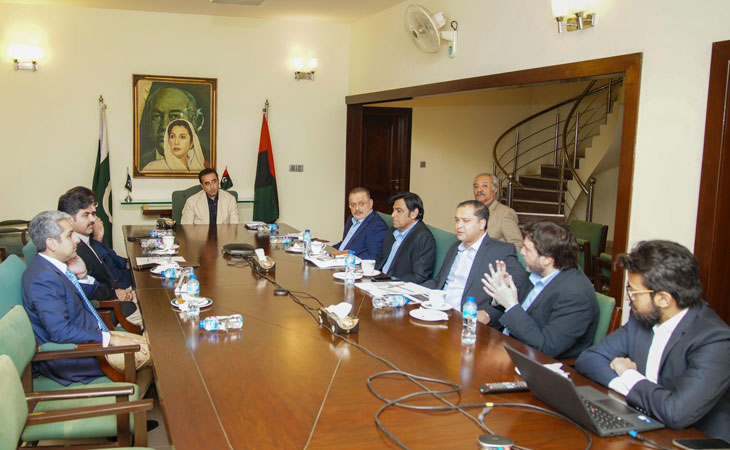 Chairman Pakistan Peoples Party (PPP) Bilawal Bhutto Zardari has said that the Sindh government has introduced a successful economic framework to strengthen the national economy through the Public-Private Partnership (PPP) model. He emphasized that the Sindh government is enhancing the quality of life for citizens across various sectors, ranging from healthcare to infrastructure, through these innovative partnerships.
Chairman Pakistan Peoples Party (PPP) Bilawal Bhutto Zardari has said that the Sindh government has introduced a successful economic framework to strengthen the national economy through the Public-Private Partnership (PPP) model. He emphasized that the Sindh government is enhancing the quality of life for citizens across various sectors, ranging from healthcare to infrastructure, through these innovative partnerships.
According to a press release issued by the Media Cell Bilawal House, Chairman PPP presided over a significant meeting at Bilawal House regarding public-private partnership projects in Sindh. The meeting was attended by Sindh Chief Minister Syed Murad Ali Shah, Senior Minister Sharjeel Inam Memon, and Minister for Energy Syed Nasir Hussain Shah.
Special Assistant to the Chief Minister on Public-Private Partnership, Qasim Naveed Qamar, briefed Chairman Bilawal Bhutto Zardari on various PPP projects aimed at enhancing infrastructure in sectors such as agriculture, fisheries, and electronic vehicle charging. The meeting was informed that infrastructure improvement projects under the PPP model in Sindh’s agriculture sector would lead to a substantial increase in the production of crops, including rice, potatoes, bananas, oranges, mangoes, guavas, and dates.
Additionally, updates were provided on PPP projects in the fisheries sector, focused on boosting exports through improved packaging and processing. Discussions also included partnerships with international organizations to establish electronic vehicle charging infrastructure in the province.
Expressing his views on the occasion, Chairman Bilawal Bhutto Zardari emphasized that through PPP projects in agriculture, fisheries, and other sectors, Pakistan can achieve an economic revolution. He further pointed out that Shaheed Mohtarma Benazir Bhutto envisioned the concept of public-private partnership in 1993, and today, its positive outcomes are evident to all.
The meeting was also attended by Sindh Chief Secretary Asif Haider Shah and Director General of Public-Private Partnership, Asad Zamin.